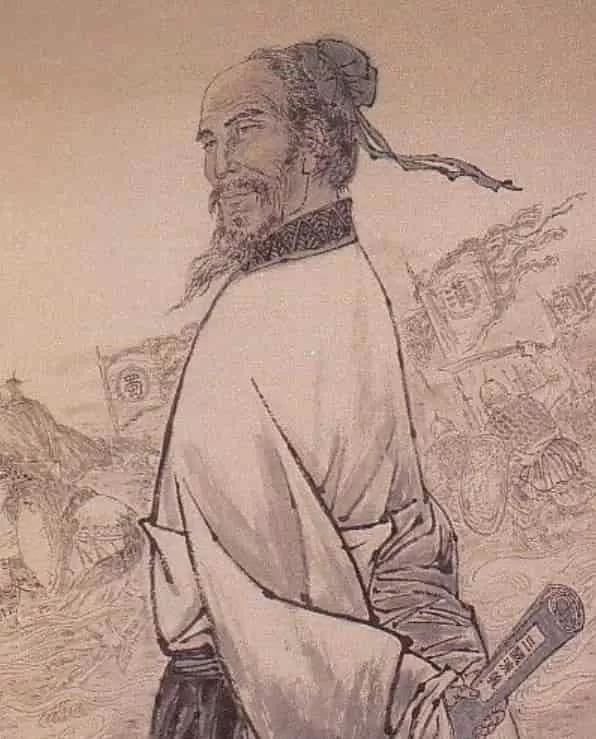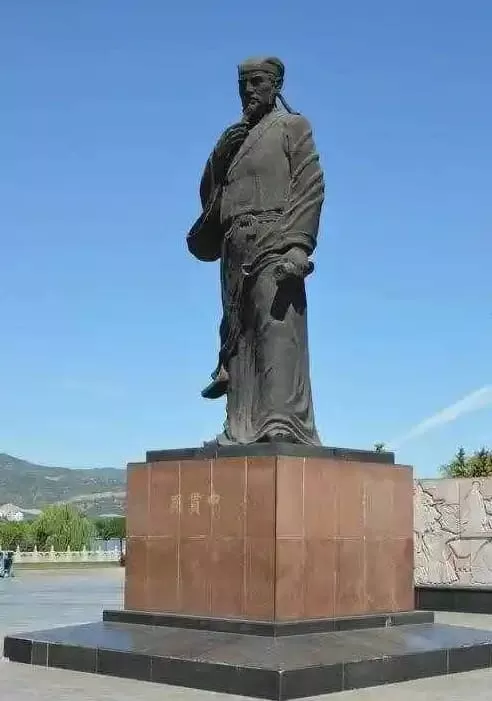
Luo Guanzhong (circa 1330 – circa 1400), born as Luo Ben, courtesy name Guanzhong, and literary name Huhai Sanren ("Hermit of Lakes and Seas"), was a novelist of the late Yuan and early Ming dynasties. He was from Taiyuan (some sources suggest Dongyuan, the ancient name of Dongping).
His most renowned work is The Popular Chronicles of the Three Kingdoms (Romance of the Three Kingdoms). His other notable literary contributions include the novels Chronicles of the Sui and Tang Dynasties, Romance of the Late Tang and Five Dynasties, The Three Sui Quash the Demons' Revolt, and The Complete Chronicles of the Water Margin. The Popular Chronicles of the Three Kingdoms (Romance of the Three Kingdoms) stands as his masterpiece, exerting a profound influence on later literary works. In addition to novels, he also authored the zaju (a form of Chinese opera) The Meeting of Dragons and Tigers: The Legend of Emperor Taizu of Song.
| full name | Luo Guanzhong |
| alias | Luo Guanzhong |
| character | Guanzhong |
| name | Lake and Sea Scattered People |
| The era in which it is located | At the end of the Yuan Dynasty and the beginning of the Ming Dynasty |
| Ethnic groups | the Han nationality |
| birthplace | Taiyuan |
| Date of Birth: | Around 1330 (the year of Gengwu) |
| date of death | About 1400 years ago |
| Main achievements | Representative works include the script of "Romance of the Three Kingdoms" and novels such as "Zhao Taizu's Dragon and Tiger Storm Meeting", as well as "Chronicles of the Sui and Tang Dynasties" and "Historical Romance of the Five Dynasties" |
| Main works | Three Kingdoms |
| My real name | Robben |
Luo Guanzhong is hailed as the pioneer of Chinese chapter-based fiction (zhanghui xiaoshuo). His works are distinguished by their episodic structure, with each chapter bearing a carefully crafted title. While each chapter tells a relatively self-contained story, the narrative flows cohesively across the entire book, forming a unified whole. The division into volumes and chapters, along with the refined wording of titles, reflects his meticulous craftsmanship. The earliest extant edition of The Popular Chronicles of the Three Kingdoms (1522) features single-line, seven-character chapter titles. In contrast, The Water Margin (co-authored with Shi Nai’an) employs dual-line titles with approximate parallelism.
Luo’s chapter-based novels also preserve elements of Song and Yuan dynasty storytelling scripts, such as opening and closing poems. The narrative often begins with the phrase huashuo (“the story goes”) and suspends action at critical moments with the cliffhanger line: “If you wish to know what happens next, listen to the explanation in the following chapter.” His works frequently incorporate poetry, songs, and prose to depict scenes or evaluate characters.
Beyond structural innovation, Luo’s novels exhibit artistic maturity. Their literary significance lies in:
Transition from collective compilation to individual authorship, marking a shift in creative ownership.
Evolution of thematic focus, from allegorical historical retellings to realistic portrayals of human life.
Expansion of subject matter, moving beyond grand political conflicts to include everyday life and domestic affairs.
Character diversity, shifting from extraordinary heroes to ordinary civilians.
Nuanced characterization, progressing from archetypal traits to dynamic, multi-dimensional personalities.
Complex narrative structures, advancing from linear plots to interconnected webs.
Linguistic development, transitioning from semi-classical prose to vernacular and dialect-rich language.
These achievements solidified the chapter-based novel as a literary form and laid the groundwork for the flourishing of vernacular short fiction in the mid-to-late Ming dynasty.
Luo Guanzhong holds a unique place in Chinese literary history. His works predominantly explore periods of chaos, covering three of China’s seven historical eras of division, including Romance of the Three Kingdoms, Chronicles of the Sui and Tang, Romance of the Late Tang and Five Dynasties, and The Three Sui Quash the Demons’ Revolt. He also contributed to The Water Margin. A versatile writer, he composed zaju operas such as The Meeting of Dragons and Tigers: The Legend of Emperor Taizu of Song, though two of his plays are now lost.
Living through the turmoil of the late Yuan dynasty, Luo witnessed social strife and understood the struggles and aspirations of ordinary people. His motivations for writing included both personal catharsis (“venting grievances and seeking momentary joy”) and a desire to reform the flaws in contemporary storytelling scripts, providing improved templates for performers and audiences. By revising and enriching popular folk narratives, he aligned his work with societal and literary needs.
Luo’s legacy, epitomized by Romance of the Three Kingdoms, marks the transition from oral storytelling traditions to mature chapter-based novels, inaugurating a new era in the evolution of Chinese fiction.
Luo Guanzhong is not only recognized as the author of Romance of the Three Kingdoms—China’s earliest chapter-based novel (zhanghui xiaoshuo) and the foundational work of the "historical romance" genre—but is also credited with pioneering other major categories of Chinese fiction. He is associated with the creation of the "heroic legends" genre through The Water Margin (co-authored with Shi Nai’an) and the "supernatural/mythological fiction" genre through The Three Sui Quash the Demons’ Revolt. Furthermore, the "domestic realism" genre, exemplified by The Plum in the Golden Vase (a spin-off of The Water Margin), can trace its roots to Luo’s influence. Thus, it can be argued that Luo single-handedly laid the groundwork for (or at least co-founded) the four principal genres of classical Chinese chapter-based novels, making his contributions pivotal to the evolution of Chinese fiction. Some scholars even acclaim him as the "Master of Ancient Chinese Fiction."
Luo’s literary repertoire also includes zaju operas such as The Meeting of Dragons and Tigers: The Legend of Emperor Taizu of Song, though two of his plays, Loyal, Righteous, and Filial: A Chain of Admonitions and Three Ministers Mourn the Death of Feihu, have been lost to time. Having lived through the social upheavals of the late Yuan dynasty, Luo bore witness to widespread turmoil and gained profound insight into the hardships and aspirations of ordinary people. His motivations for writing were twofold: to "vent momentary grievances and seek transient joy," and to reform the flaws in contemporary storytelling scripts, providing refined templates for both storytellers and audiences. By revising and enriching popular folk narratives, he aligned his creative efforts with the cultural and societal demands of his era.
Luo’s works, particularly Romance of the Three Kingdoms, marked a turning point in Chinese literary history by completing the transition from oral storytelling traditions (huaben) to structured, long-form chapter-based novels. This achievement inaugurated a new chapter in the development of Chinese fiction, establishing a legacy that continues to resonate. Through his innovative storytelling, multidimensional characters, and integration of historical and imaginative elements, Luo Guanzhong not only shaped literary conventions but also immortalized the complexities of human experience in times of chaos, securing his status as a titan of classical Chinese literature.

Provides The Most Comprehensive English Versions Of Chinese Classical Novels And Classic Books Online Reading.
Copyright © 2025 Chinese-Novels.com All Rights Reserved
